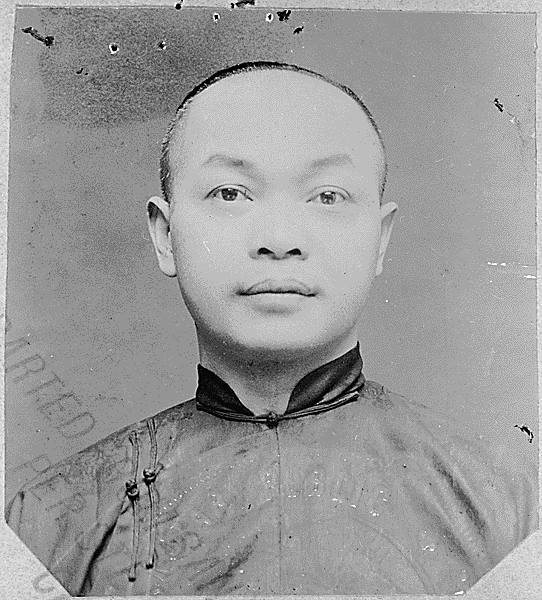longyi
FULL MEMBER

- Joined
- Jan 22, 2012
- Messages
- 872
- Reaction score
- 0
- Country
- Location
Today's feature article from Wikipedia
United States of America v. Wong Kim Ark (黃金德 , 169 U.S. 649 (1898), is a United States Supreme Court case in which the Court held that virtually everyone born in the United States is a U.S. citizen. This decision established an important precedent in its interpretation of the Citizenship Clause of the Fourteenth Amendment to the Constitution.
, 169 U.S. 649 (1898), is a United States Supreme Court case in which the Court held that virtually everyone born in the United States is a U.S. citizen. This decision established an important precedent in its interpretation of the Citizenship Clause of the Fourteenth Amendment to the Constitution.
Wong Kim Ark, who was born in San Francisco to Chinese parents around 1871, had been denied re-entry to the United States after a trip abroad, under a law restricting Chinese immigration and prohibiting immigrants from China from becoming naturalized U.S. citizens. He challenged the government's refusal to recognize his citizenship, and the Supreme Court ruled in his favor, holding that the citizenship language in the Fourteenth Amendment encompassed essentially everyone born in the U.S.—even the U.S.-born children of foreigners—and could not be limited in its effect by an act of Congress.
continue reading> United States v. Wong Kim Ark - Wikipedia, the free encyclopedia
Notice the translation of his given name 德 as Ark indicates his parent were from the prefecture of Taishan which speak Taishanese, a subgroup of Cantonese. Both dialects, more often than, are incomprehensible. The Taishanese unarguable were the first group of indenture workers (卖猪仔 arrived in the US. They were part of the original rail road workers that helped build the cross country railway.
arrived in the US. They were part of the original rail road workers that helped build the cross country railway.
Today they constitute as the largest Chinese dialect group in both San Francisco and New York, the two largest Chinese enclaves out side of Asia. Along with Hakka, historically, they were the hardest working people amidst the anti Chinese environments in America. Today their descendants are mostly business people, doctors/lawyers and other professional.
United States of America v. Wong Kim Ark (黃金德
 , 169 U.S. 649 (1898), is a United States Supreme Court case in which the Court held that virtually everyone born in the United States is a U.S. citizen. This decision established an important precedent in its interpretation of the Citizenship Clause of the Fourteenth Amendment to the Constitution.
, 169 U.S. 649 (1898), is a United States Supreme Court case in which the Court held that virtually everyone born in the United States is a U.S. citizen. This decision established an important precedent in its interpretation of the Citizenship Clause of the Fourteenth Amendment to the Constitution.Wong Kim Ark, who was born in San Francisco to Chinese parents around 1871, had been denied re-entry to the United States after a trip abroad, under a law restricting Chinese immigration and prohibiting immigrants from China from becoming naturalized U.S. citizens. He challenged the government's refusal to recognize his citizenship, and the Supreme Court ruled in his favor, holding that the citizenship language in the Fourteenth Amendment encompassed essentially everyone born in the U.S.—even the U.S.-born children of foreigners—and could not be limited in its effect by an act of Congress.
continue reading> United States v. Wong Kim Ark - Wikipedia, the free encyclopedia
Notice the translation of his given name 德 as Ark indicates his parent were from the prefecture of Taishan which speak Taishanese, a subgroup of Cantonese. Both dialects, more often than, are incomprehensible. The Taishanese unarguable were the first group of indenture workers (卖猪仔
 arrived in the US. They were part of the original rail road workers that helped build the cross country railway.
arrived in the US. They were part of the original rail road workers that helped build the cross country railway. Today they constitute as the largest Chinese dialect group in both San Francisco and New York, the two largest Chinese enclaves out side of Asia. Along with Hakka, historically, they were the hardest working people amidst the anti Chinese environments in America. Today their descendants are mostly business people, doctors/lawyers and other professional.


